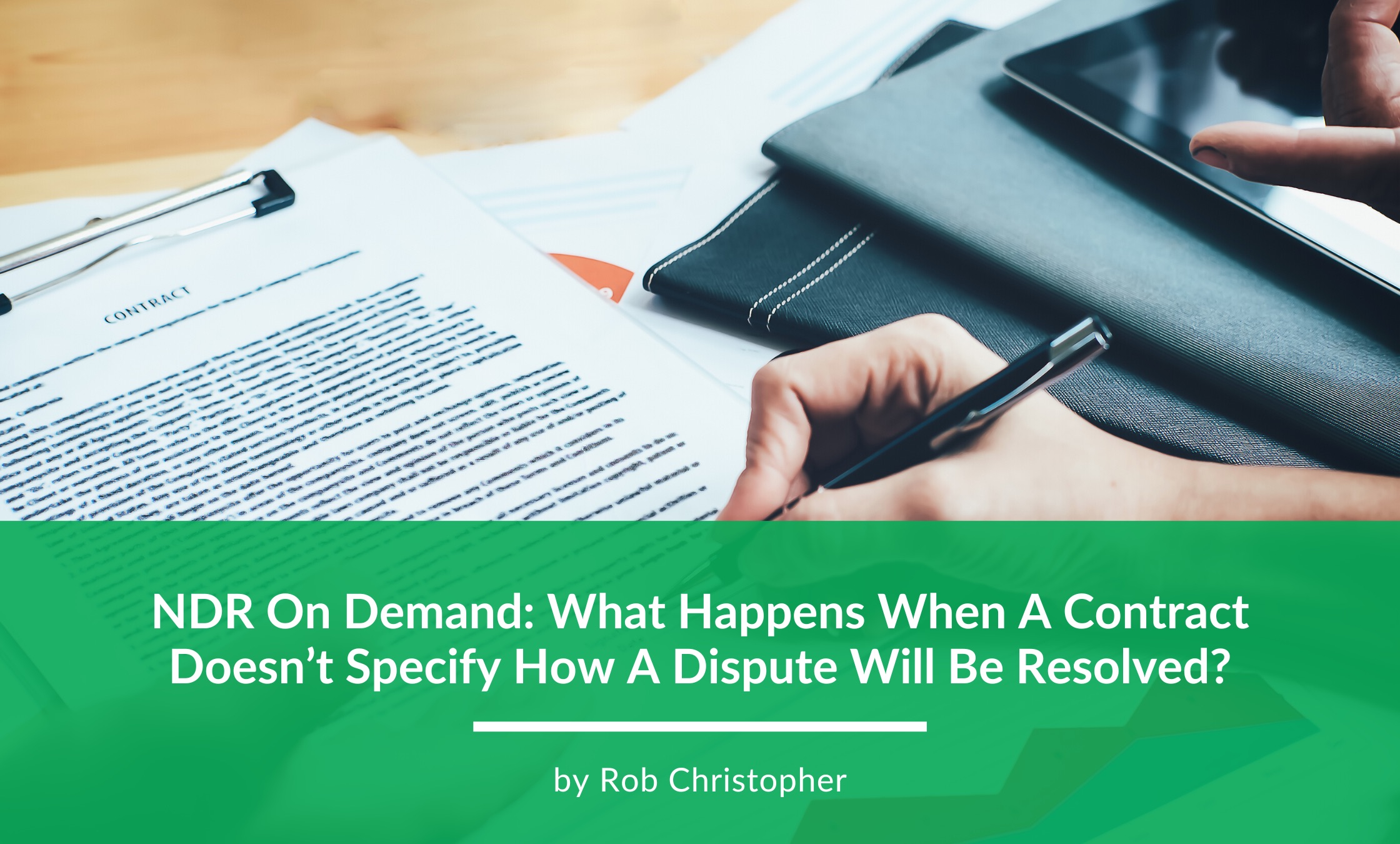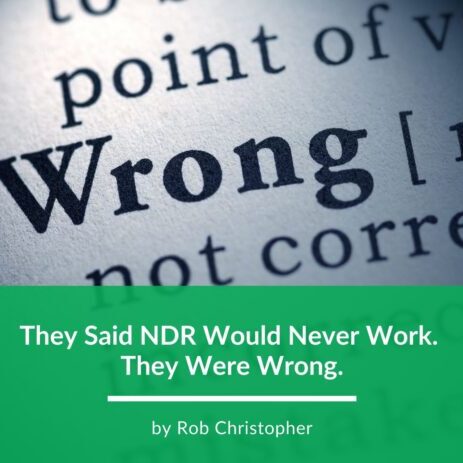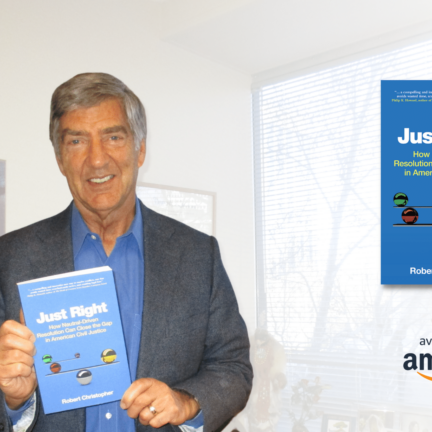NDR on Demand: What Happens When a Contract Doesn’t Specify How a Dispute Will Be Resolved?

The best way to deter threats of litigation and minimize the costs, duration, and distractions of resolving any dispute is to put a dispute resolution clause specifying NDR — Neutral-Driven Resolution — in all your contracts BEFORE there is a problem. That means that if a dispute should arise between a business and a contractor, supplier, or customer, NDR will be the already-agreed method of resolving it. It can be done simply and at the beginning of a relationship – a time when optimism and trust tend to be high and no one of good faith expects troublesome future disputes. The contract clause can read something like:
DISPUTE RESOLUTION. The parties agree to submit any dispute arising out of or relating to this Agreement to independent neutral service _______ [e.g., “Just Resolve LLC (www.justresolve.com)”] for binding neutral-driven, non-adversarial resolution (“NDR”) according to its then-current rules.*
It’s like having a spare tire in the trunk. You hope it’ll never be needed, but it’s good to know it’s there if there’s a blowout.
But what happens when an NDR clause isn’t specified in the contract? Or there’s no contract between disputing parties? Can NDR be called upon to help settle a common, limited-stakes dispute anyway?
The answer is yes. But…..
The challenge is that both sides in a dispute must agree to use NDR. This is much harder after a dispute has arisen, because at least one of the parties is probably disappointed or angry with the other, and both are likely to be suspicious of anything that the other thinks is a good idea. So, often they simply bring in the lawyers and it’s off the races.
But if opposing parties closely examine the full and often hidden costs of settling common disputes the traditional way — legal fees that cost more than the amount in dispute, along with lost time away from work, damaged relationships and reputations, stress and loss of sleep — NDR can look very attractive. It’s also likely to lead to a better net result for both sides, win or lose.
In these situations, sometimes just raising the possibility of using NDR to settle a dispute can produce results. As a negotiating tool, proposing NDR makes a lot of sense: It takes the moral high ground. It conveys an unambiguous message of honest strength and confidence in the merits of one’s position. It also declares a commitment to fair dealing even in the face of strong disagreement. Finally, there is nothing weak or subject to misinterpretation about a willingness to bet on oneself and accept the consequences. This is often quite unexpected and surprising to the other party, who may have already demonized their opponent.
For example, in a recent employment dispute, both sides viewed the other’s willingness to agree to NDR as an honest belief that they were right and would be vindicated by the neutral arbiter’s decision. Because of this (and knowing the amount of the neutral arbiter’s fixed fee for conducting the NDR process), the parties quickly negotiated a settlement acceptable to both.
In another case, when the parties were at impasse and one side refused to agree to NDR, the party proposing it realized that the opponent was simply hoping to extort a large settlement and probably didn’t honestly believe in her case – why not accept a likely win at a fraction of the time and cost? So the proposing party stood firm on their last best “nuisance” offer and the other side accepted a few days later.
In short, there’s a lot to gain and little to lose in suggesting NDR, contract or not.
For more information and details, get in touch or read my book Just Right: How Neutral-Driven Resolution Can Close the Gap in American Civil Justice, available on Amazon and other online book sellers. Or follow us on LinkedIn, Facebook and Twitter.
*subject to governing state law
More to read
They Said NDR Would Never Work. They Were Wrong.
Many people are surprised by how effective NDR can be. Since publishing my book and speaking at events about NDR (Neutral-Driven Resolution), I’ve often been asked a simple question: Does it work? And if it really does lower the costs and the time it takes to settle common disputes, why doesn’t everybody know about…
“Morgan Hill author releases new book”
The Morgan Hill Times featured Rob’s new book in an article ahead of his “Meet the Author” night at Booksmart. “Legal disputes and conflicts cost businesses billions of dollars a year in lawyers’ fees, lost productivity, time and aggravation. A new book by Morgan Hill author Robert Christopher proposes an innovative, faster and simpler way…
Not All Disputes are Equal
Not all business and legal disputes are alike, and not all of them can be resolved in the same way. In writing my book Just Right: How Neutral-Driven Resolution Can Close the Gap in American Civil Justice, it was important to distinguish the types of common disputes for which NDR is most suitable. As readers…
Press Release
New Alternative Dispute Resolution Book Describes Innovative Method to Lower Costs, Aggravation of Business and Legal Disputes A Neutral-Driven Resolution Process Saves Substantial Time, Money, Stress SAN JOSE, Calif., March 24, 2022 — Legal disputes and conflicts cost businesses billions of dollars a year in lawyers’ fees, lost productivity, time, and aggravation. A new book…


